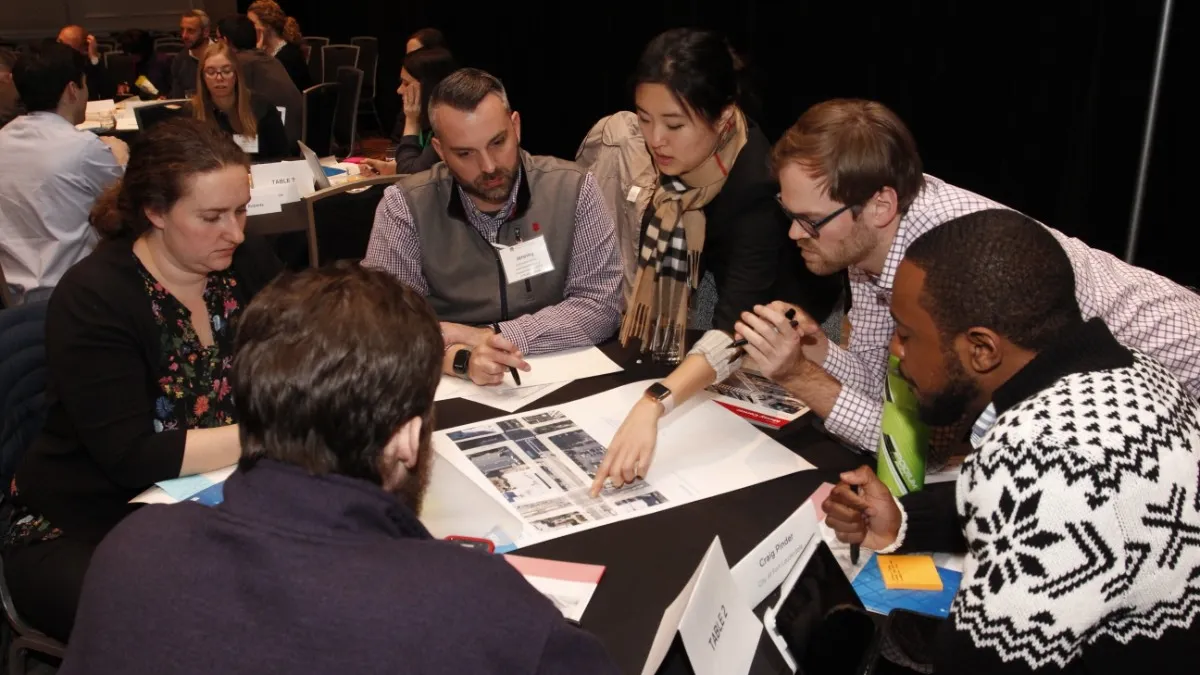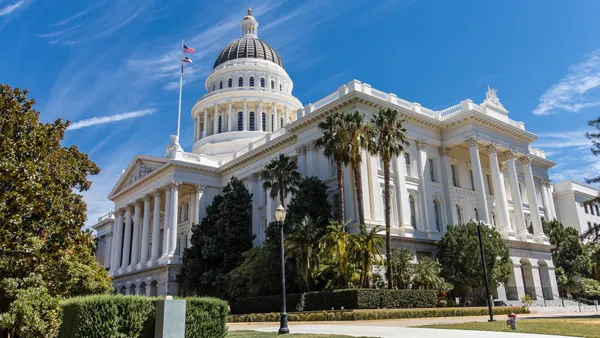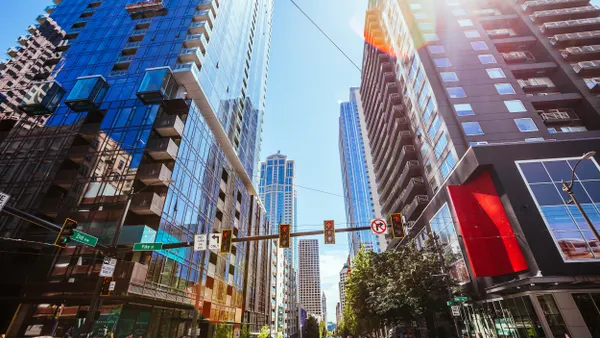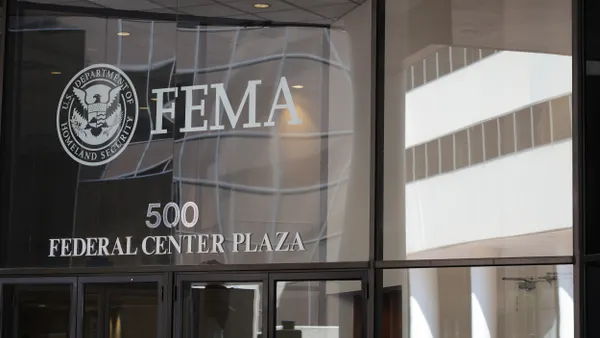The new coronavirus (COVID-19) has brought many networking opportunities to a screeching halt as event planners are forced to readjust or cancel highly anticipated smart city conferences.
The National Shared Mobility Summit, which was scheduled to occur last month in Chicago at the McCormick Place convention center, is one of these affected events. The conference facility was transformed into a makeshift hospital with 3,000 beds for patients with COVID-19, leaving event organizers with a myriad of challenges to ensure the show will go on.
The event, which was rebranded the Shared Mobility Summit Live, is now slated to occur virtually from May 5-6. Smart Cities Dive caught up with Shared-Use Mobility Center Executive Director Sharon Feigon to learn more about the group's decision to move the conference online, including the associated costs, challenges and security risks.
The following has been edited for clarity and brevity.
SMART CITIES DIVE: What factors did you have to consider when you decided to cancel the in-person conference? What made you decide to move it online?
SHARON FEIGON: We were expecting over 800 people from all around the country and some international folks as well. Once it became unsafe to travel and to gather, [and] as Illinois started declaring a state of emergency… we didn't want people to come. We couldn’t ask people to come.
We have held a lot of webinars. But it's very different to think about a summit and how to keep people engaged over a couple days. We're trying to make it as interactive as we can and also build in breaks and fun movement so that people are not completely glued to just sitting at their desks because they're not going to do that — they're just going to be distracted.
A lot of trying to make it virtual, is trying to make it a little bit shorter, breaking it up and then using technology that’ll really allow for interactive sessions with video interactive sessions, not just chat.
Did you have a contingency plan in place in case the conference had to be canceled?
FEIGON: No, we had no contingency plan. When we looked into our insurance that we always have for when you have events, none of it related in any way to covering anything so it was a big deal. It was a really hard decision.
[The event] is important for the industry because our summit is really a place that brings together the public and private sector and a lot of partnerships have formed out of it. It's something a lot of people look forward to and it's significant in trying to be the latest in what’s going on across public and private sectors so we didn't want to cancel… but we needed to cancel and we understood that.
What are the costs of canceling a conference and moving it online?
FEIGON: I can't tell you specifically except to say that we were very close to the date of the summit so we had a lot of deposits… we had spent the money obviously planning for it [with] staff time and conference planners and so forth. We had a lot of deposits for hotel rooms and reception and catering, all these different things.
It required us to really move into high gear at a time when I don't think anyone really wanted to and start pursuing refunds for everything and then asking our attendees and also sponsors to stick with us and roll the funds into a virtual summit. It’s been a mix of all of those things.
"We decided to forge ahead with a lot of uncertainty."

We've heard from some of the bigger companies about our deposits and they're very accommodating…[but] some of them we haven't even been able to get a response. Smaller companies are not in good shape and … we haven’t necessarily heard from all of them. And in terms of attendees, some people wanted partial refunds, some people wanted full refunds. And the same thing with the sponsors just depending on their circumstances.
We’re hopeful that when we add and subtract it all up, that it’s going to work out for us. We decided to forge ahead with a lot of uncertainty.
What are some of the other challenges to moving a conference online?
FEIGON: People are interested in coming to our summit because they are really interested in the networking and … the spur of the moment conversations you have when you’re at an event so that's the big challenge: trying to think about how we could make that possible.
We have a startup spotlight where we feature startups and they compete against each other… we can do that online and we can have polling and voting and everything, but again for them, they like to be there and actually meet all these people.
Are you concerned about the security of moving the conference online? How are you working to ensure that the virtual conference is secure?
FEIGON: We’re using software called HeySummit and we're using Zoom. We’re still figuring [it] out … but Zoom [does] have a system in terms of password protection and making sure the links are secure. You do have to be registered for the summit to attend and there is a cost so it's not like anybody can just come on there… setting up the security of how people participate is an important component of that.
How do you think smart city conferences might change due to the pandemic?
FEIGON: There's something about the in-person part that's really valuable and really important. But the direct presentation of information like the panel ... maybe more of that can move to different virtual platforms. And maybe these summits will be shorter [and] will be more focused around the stuff that really happens best in-person and then other things will get spread out through the year in different virtual ways.
What advice would you offer to other conference organizers grappling with how to move their own events forward?
FEIGON: Everybody's set-up is different and their needs are different. Really think about what your goals are and really how much of it is about the networking and how much of it is conveying an educational [component] that can be delivered versus networking time.
One thing we're doing without a [physical] summit, is that even though we're doing a two-day [virtual] summit, we’re not doing all the breakouts we had planned... We're creating a schedule that will go over a period of time for things we can’t fit in those two days. You can't hack too heavy a schedule if you’re expecting people to sit there in front of a screen and actually pay attention.
To keep up with all of our coverage on how the new coronavirus is impacting U.S. cities, visit our daily tracker.











